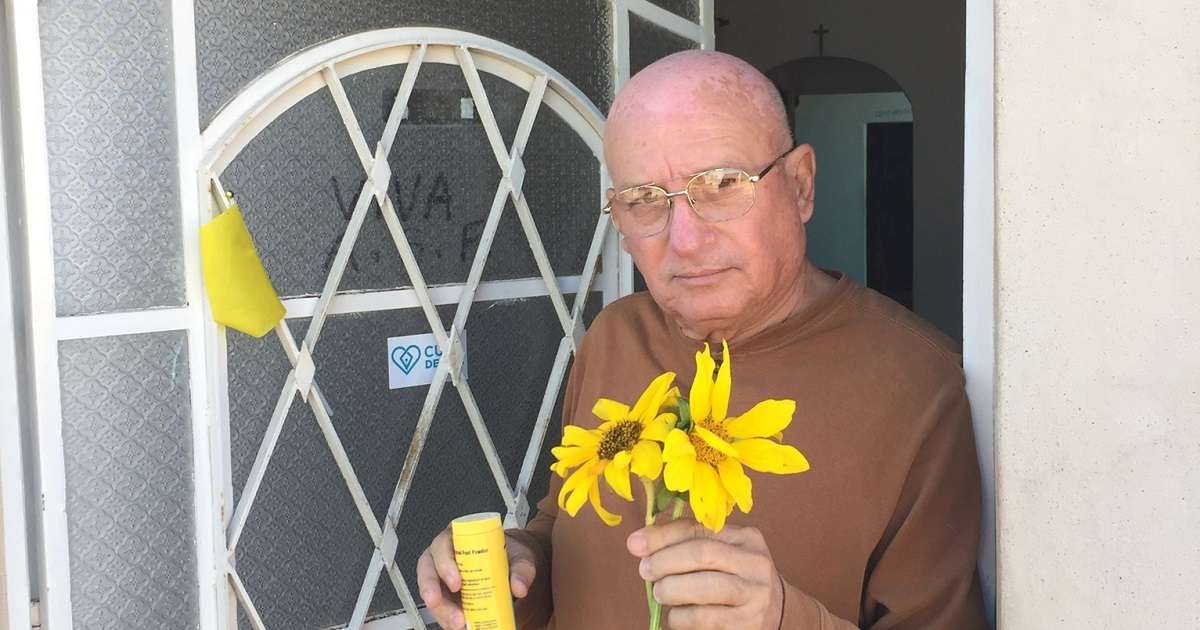Félix Navarro, a prominent Cuban dissident and one of the July 11th prisoners recently released on Saturday, January 18, after over four years behind bars, declared that "today, we are closer to the liberation of Cuba." As a leading figure in the Pedro Luis Boitel Democracy Party and vice president of the Council for Democratic Transition in Cuba, Navarro conveyed his steadfast belief to the independent media outlet Diario de Cuba that the island's freedom is within reach. "We will achieve it," he affirmed.
Navarro, who was also detained as a prisoner of conscience during the Black Spring of 2003 and refused exile thereafter, was granted parole due to his fragile health, which has been compromised by diabetes and other ailments. This decision by the Cuban regime, opting for conditional freedom over an extrapenal license, has faced significant criticism from human rights organizations.
Upon his release from Agüica Prison in Matanzas, Navarro voiced his concern for his daughter, Sayli Navarro, who remains imprisoned since 2021 for her involvement in the July 11th protests. "I thought it would be her voice answering the phone when I called home," he recounted. Both Sayli and Félix were sentenced for alleged offenses of assault and public disorder following the 2021 protests, with Félix receiving a nine-year prison term.
The dissident denounced the severe restrictions on communication he faced, as he was only allowed to speak with his family once a week under strict surveillance. "Since September 2023, my phone use was heavily monitored. The re-educator was always present during family visits and wouldn’t allow me to use it to make complaints," he noted.
At 71 years old, Navarro revealed that he had been unable to take medication for his diabetes due to a shortage in the prison. "The pills ran out, and because I was isolated, I couldn't inform my family to resolve the issue," he explained. Describing the conditions, he said, "The food was terrible. We were given yucca for days because there was no rice, just water with herbs. Once the releases were announced, rice appeared, and things improved slightly," he shared.
The opposition leader also used the opportunity to highlight the inhumane treatment some prisoners endure at Agüica Prison. He recounted the situation of Ramón Gil Tacoronte, known as "Barriguita," who has been forced to sleep on the floor without a mattress as punishment for an incident in December. "He’s sleeping on a board. When they brought him in, they wouldn’t give back his mattress or blanket, despite the cold," Navarro reported.
On the same day, Brenda Díaz, a transgender prisoner sentenced to 14 years and seven months for her role in the July 11th protests, was also released. Díaz has suffered abuse and degrading treatment due to her gender identity, making her one of the most vulnerable inmates in the Cuban penitentiary system.
These releases occurred in the context of Cuba's recent removal from the list of state sponsors of terrorism, as announced by the Biden Administration. As of Thursday, January 18, 127 prisoners had been released, with only 39 being political prisoners, according to the regime, which had agreed with the Vatican and the United States to free 553 inmates.
Understanding the Recent Releases in Cuba
Why was Félix Navarro released?
Félix Navarro was released on parole due to his deteriorating health conditions, which include diabetes and other ailments.
Who is Sayli Navarro?
Sayli Navarro is the daughter of Félix Navarro and has been imprisoned since 2021 for her participation in the July 11th protests in Cuba.
What conditions did Félix Navarro face in prison?
Félix Navarro faced communication restrictions, inadequate food, and a lack of medication for his diabetes while in prison.
What led to the recent prisoner releases in Cuba?
The releases are part of an agreement involving the Vatican and the United States, following Cuba's removal from the list of state sponsors of terrorism.
